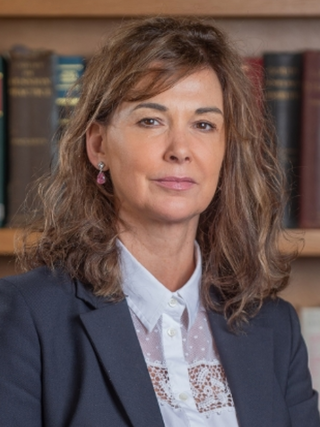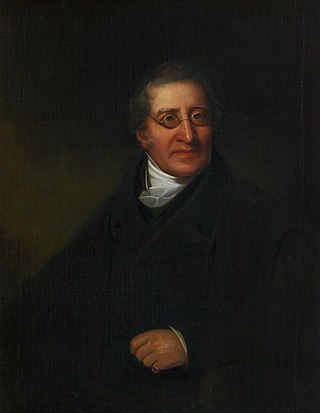
The Lord President of the Court of Session and Lord Justice General is the most senior judge in Scotland, the head of the judiciary, and the presiding judge of the College of Justice, the Court of Session, and the High Court of Justiciary. The Lord President holds the title of Lord Justice General of Scotland and the head of the High Court of Justiciary ex officio, as the two offices were combined in 1836. The Lord President has authority over any court established under Scots law, except for the Supreme Court of the United Kingdom and the Court of the Lord Lyon.

The Court of Session is the supreme civil court of Scotland and constitutes part of the College of Justice; the supreme criminal court of Scotland is the High Court of Justiciary. The Court of Session sits in Parliament House in Edinburgh and is both a trial court and a court of appeal. The court was established in 1532 by an Act of the Parliament of Scotland, and was initially presided over by the Lord Chancellor of Scotland and had equal numbers of clergy and laity. The judges were all appointed from the King's Council. As of May 2017, the Lord President was Lord Carloway, who was appointed on 19 December 2015, and the Lord Justice Clerk was Lady Dorrian, who was appointed on 13 April 2016.

The High Court of Justiciary is the supreme criminal court in Scotland. The High Court is both a trial court and a court of appeal. As a trial court, the High Court sits on circuit at Parliament House or in the adjacent former Sheriff Court building in the Old Town in Edinburgh, or in dedicated buildings in Glasgow and Aberdeen. The High Court sometimes sits in various smaller towns in Scotland, where it uses the local sheriff court building. As an appeal court, the High Court sits only in Edinburgh. On one occasion the High Court of Justiciary sat outside Scotland, at Zeist in the Netherlands during the Pan Am Flight 103 bombing trial, as the Scottish Court in the Netherlands. At Zeist the High Court sat both as a trial court, and an appeal court for the initial appeal by Abdelbaset al-Megrahi.

His Majesty's Advocate, known as the Lord Advocate, is the principal legal adviser of both the Scottish Government and the Crown in Scotland for civil and criminal matters that fall within the devolved powers of the Scottish Parliament. The Lord Advocate provides legal advice to the government on its responsibilities, policies, legislation and advising on the legal implications of any proposals brought forward by the government. The Lord Advocate is responsible for all legal advice which is given to the Scottish Government.

A sheriff court is the principal local civil and criminal court in Scotland, with exclusive jurisdiction over all civil cases with a monetary value up to £100,000, and with the jurisdiction to hear any criminal case except treason, murder, and rape, which are in the exclusive jurisdiction of the High Court of Justiciary. Though the sheriff courts have concurrent jurisdiction with the High Court over armed robbery, drug trafficking, and sexual offences involving children, the vast majority of these cases are heard by the High Court. Each court serves a sheriff court district within one of the six sheriffdoms of Scotland. Each sheriff court is presided over by a sheriff, who is a legally qualified judge, and part of the judiciary of Scotland.

The Lord Justice Clerk is the second most senior judge in Scotland, after the Lord President of the Court of Session. The current Lord Justice Clerk is Leeona Dorrian, Lady Dorrian, who was appointed to the position on 13 April 2016.

The Scottish Courts and Tribunals Service (SCTS) is an independent public body which is responsible for the administration of the courts and tribunals of Scotland. The Service is led by a board which is chaired by the Lord President of the Court of Session, and employs over 1000 staff members in the country's 39 sheriff courts, 34 justice of the peace courts, the Court of Session and the High Court of Justiciary, and at the service's headquarters in Edinburgh. The day-to-day administration of the service is the responsibility of its chief executive and executive directors. The Scottish Courts and Tribunals Service is also responsible for providing administrative services for the Judicial Office for Scotland, the Office of the Public Guardian, the Accountant of Court, the Criminal Courts Rules Council, and the Scottish Civil Justice Council.

The Crown Office and Procurator Fiscal Service is the independent public prosecution service for Scotland, and is a Ministerial Department of the Scottish Government. The department is headed by His Majesty's Lord Advocate, who under the Scottish legal system is responsible for prosecution, along with the sheriffdom procurators fiscal. In Scotland, virtually all prosecution of criminal offences is undertaken by the Crown. Private prosecutions are extremely rare.

Parliament House, located in the Old Town in Edinburgh, Scotland, is a complex of several buildings housing the Supreme Courts of Scotland. The oldest part of the complex was home to the Parliament of Scotland from 1639 to 1707, and is the world's first purpose-built parliament building.

The courts of Scotland are responsible for administration of justice in Scotland, under statutory, common law and equitable provisions within Scots law. The courts are presided over by the judiciary of Scotland, who are the various judicial office holders responsible for issuing judgments, ensuring fair trials, and deciding on sentencing. The Court of Session is the supreme civil court of Scotland, subject to appeals to the Supreme Court of the United Kingdom, and the High Court of Justiciary is the supreme criminal court, which is only subject to the authority of the Supreme Court of the United Kingdom on devolution issues and human rights compatibility issues.
A court clerk is an officer of the court whose responsibilities include maintaining records of a court and administering oaths to witnesses, jurors, and grand jurors as well as performing some quasi-secretarial duties. The records management duties of a court clerk including the acceptance of documents for filing with the court to become part of the court's official records, preserving and protecting those records, providing the general public with access to those records, and maintaining the docket, register of actions, and/or minutes of the court which list all filings and events in each case. These duties are important because the availability of legal relief often depends upon the timely filing of documents before applicable deadlines.

The Senators of the College of Justice in Scotland are judges of the College of Justice, a set of legal institutions involved in the administration of justice in Scotland. There are three types of senator: Lords of Session ; Lords Commissioners of Justiciary ; and the Chairman of the Scottish Land Court. Whilst the High Court and Court of Session historically maintained separate judiciary, these are now identical, and the term Senator is almost exclusively used in referring to the judges of these courts.

George Joseph Bell was a Scottish advocate and legal scholar. From 1822 to 1843 he was Professor of Scots Law at the University of Edinburgh. He was succeeded by John Shank More.

The College of Justice includes the Supreme Courts of Scotland, and its associated bodies.

The Scottish Land Court is a Scottish court of law based in Edinburgh with subject-matter jurisdiction covering disputes between landlords and tenants relating to agricultural tenancies, and matters related to crofts and crofters. The Scottish Land Court is both a trial court and an appeal court; hearings at first-instance are often heard by a Divisional Court of one of the Agricultural Members advised by the Principal Clerk. Decisions of the Divisional Court can be appealed to the Full Court, which will consist of at least one legally qualified judicial member and the remaining Agricultural Member. Some cases are heard at first-instance by the Full Court, and these cases may be appealed to the Inner House of the Court of Session.
Andrew Fletcher, Lord Milton was a notable Scottish judge and Lord Justice Clerk.

Thomas ThomsonFRSE FSA Scot was a Scottish advocate, antiquarian and archivist who served as Principal Clerk of Session (1828–1852) and as secretary of the literary section of the Royal Society of Edinburgh (1812–20).

Scots law is the legal system of Scotland. It is a hybrid or mixed legal system containing civil law and common law elements, that traces its roots to a number of different historical sources. Together with English law and Northern Irish law, it is one of the three legal systems of the United Kingdom. Scots law recognises four sources of law: legislation, legal precedent, specific academic writings, and custom. Legislation affecting Scotland and Scots law is passed by the Scottish Parliament on all areas of devolved responsibility, and the United Kingdom Parliament on reserved matters. Some legislation passed by the pre-1707 Parliament of Scotland is still also valid.
James Fergusson (1769–1842) was a Scottish judge and legal writer.

The judiciary of Scotland are the judicial office holders who sit in the courts of Scotland and make decisions in both civil and criminal cases. Judges make sure that cases and verdicts are within the parameters set by Scots law, and they must hand down appropriate judgments and sentences. Judicial independence is guaranteed in law, with a legal duty on Scottish Ministers, the Lord Advocate and the Members of the Scottish Parliament to uphold judicial independence, and barring them from influencing the judges through any form of special access.










